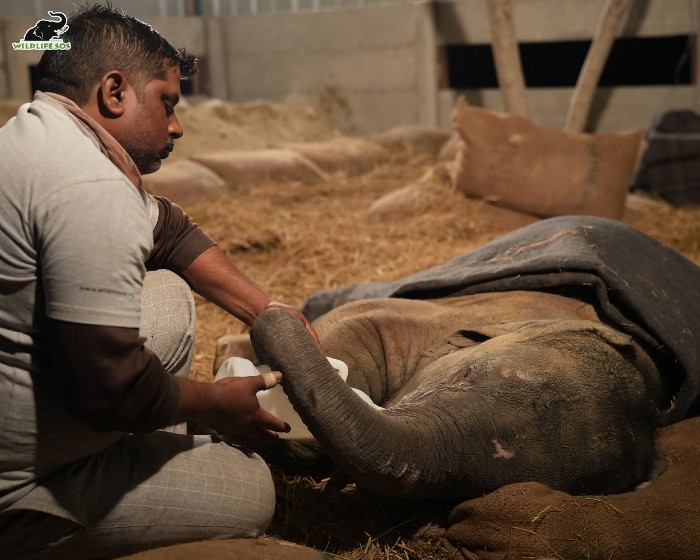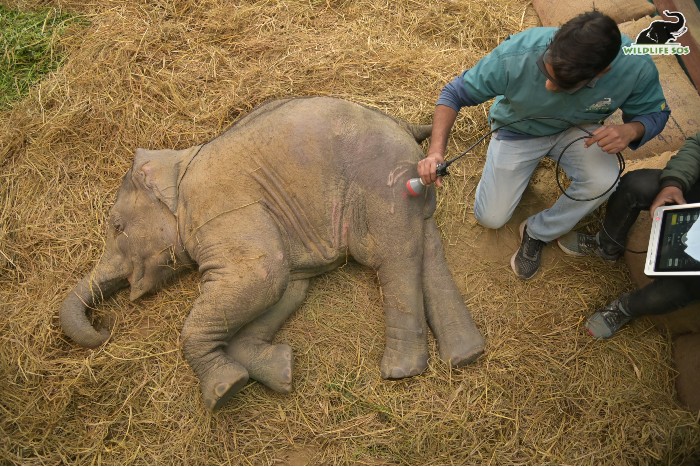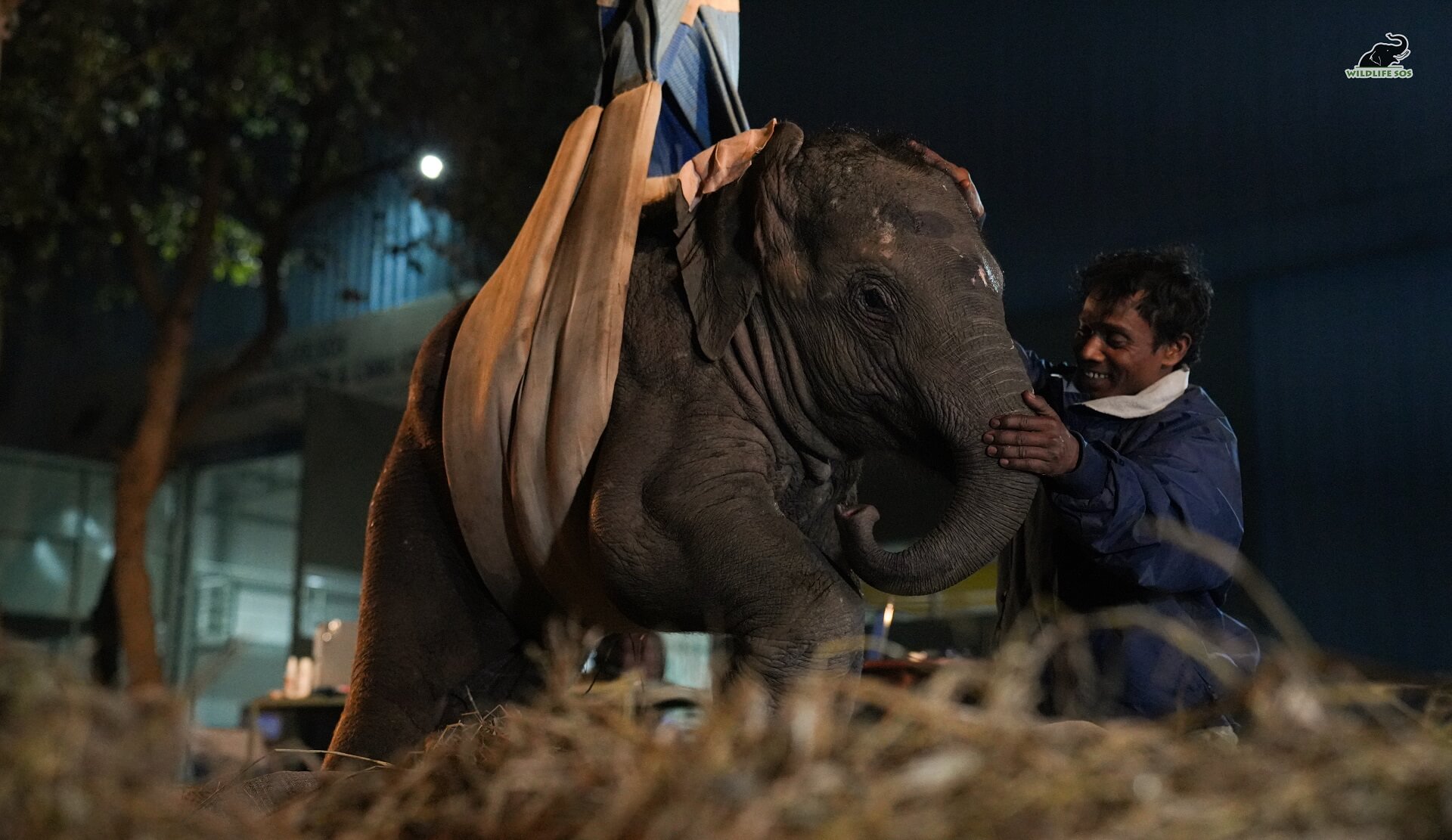The 9-month-old elephant, which rescuers have named Bani (Mother Earth), was hit by a speeding train near Corbett National Park in northern India in mid-December, leaving her seriously injured and paralyzed. Bani’s mother, who was pregnant at the time, died in the same accident.

A veterinary worker at the Wildlife SOS Elephant Conservation and Care Center in Mathura, Uttar Pradesh, northern India, feeds Bani, a 9-month-old female elephant injured in a train strike. Courtesy of Wildlife SOS

Wildlife authorities treated Bani for hip and spine injuries at a local facility for more than a month, but she showed no improvement. In early February, she was moved to the city of Mathura for treatment at India’s first veterinary hospital exclusively for elephants, run by the conservation organization Wildlife SOS.

Veterinarians at the hospital told CBS News there’s been some improvement in her condition, but they’re finding it challenging to pinpoint all of Bani’s fractures.
“We have taken multiple x-rays… but we could not see where exactly the bone breakages are,” Dr. A. Sha Arun, a senior veterinarian at the Wildlife SOS center told CBS News. “It’s a little challenging, because hip regions are bulky and not easy to penetrate with normal x-rays.”

Veterinary workers at the Wildlife SOS Elephant Care and Conservation Center in Mathura, northern India, scan the hip of Bani, a 9-month-old elephant calf seriously injured by a train strike. Courtesy of Wildlife SOS
Vets told CBS News that Bani had multiple wounds to her back and groin, which have continued healing slowly.

Scientists consider elephants one of the most emotionally advanced species, and the vets believe the violent death of Bani’s mother in the train crash is likely having some psychological impact, and possible slowing her physical recovery.

But they have been encouraged as she’s started becoming more playful with her caregivers, holding their hands with her trunk, eating well and responding to treatment.

Indian villagers gather near the carcasses of elephants killed by a train near the forests of Marghat, in West Bengal state, in a May 30, 2013 file photo. AFP via Getty
Conservationists argue train tracks shouldn’t even exist in wildlife corridors, and they say India’s ever-expanding railway network overlooks the price wildlife is paying for transport connectivity in the world’s most populous nation.

An elephant injured by a passenger train as it crossed railway tracks at Dayna village is seen in a field in Jalpaiguri district of West Bengal state, India, in a Sept. 27, 2019 file photo. STR/AFP/Getty
Last week, the southern Indian state of Tamil Nadu became the first to launch an artificial intelligence and machine learning-enabled surveillance system to help prevent elephant deaths on railway tracks.